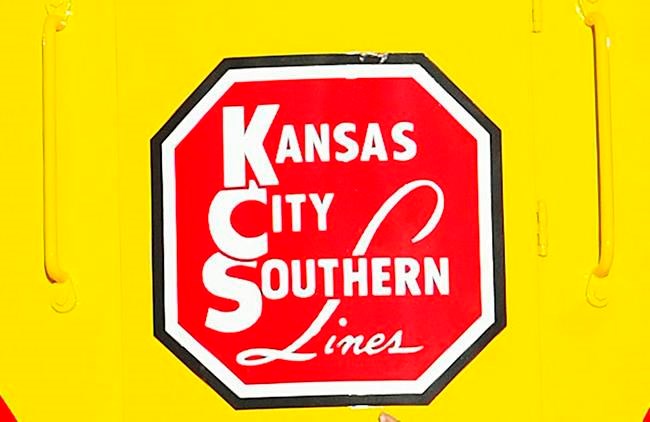CALGARY — Railroad shippers have a much more negative view of a bid by Canadian National Railway Co. to take over the Kansas City Southern railroad than a competing offer by Canadian Pacific Railway Ltd., according to a "snap survey" published by a U.S. financial analyst on Friday.
"Our snap railroad shipper survey shows that CN is likely to have a more difficult time with shippers supporting their proposed acquisition of KCS," said analyst Jason Seidl of Cowen in a report.
"This compares to a more favourable view by shippers of CP acquiring KCS in our last survey. Twenty per cent of shippers surveyed said a combination of CN-KCS would cause them to lose a rail shipping option, a higher number than we would have thought."
The survey of more than 100 shippers over a 24-hour period showed that 25 per cent had a positive view of the CN transaction, while 45 per cent had a negative view and 30 per cent had no opinion, the report noted.
It said a similar prior survey found that 44 per cent had a positive view of the CP-KCS deal and 18 per cent had a negative view.
The shippers in the latest survey voted 36 per cent in favour of CP as their preferred winner of the battle for KCS but almost as many, 34 per cent, said the best option would be for KCS to continue as an independent. Only 16 per cent wanted CN to succeed.
The report arrives as a war of words continues to play out between Montreal-based CN, which on Tuesday announced a cash-and-stock bid valued at US$33.7 billion for Kansas City, Mo.-based KCS, and Calgary-based CP Rail, which made a bid valued at US$25 billion last month.
On Friday, CN Rail released a letter it sent to the U.S. regulator that governs railway mergers declaring its bid for KCS was pro-competitive and in the public interest.
It said it also aimed to "correct misleading statements" in a letter CP reported sending to the U.S. Surface Transportation Board on Thursday, in which it again called CN's offer "“illusory” and “anticompetitive.”
"CN is confident that KCS will recognize the value of the CN proposal and will choose to partner with CN," says the CN letter.
"But that is a choice for KCS and its shareholders to make. Under the terms of the KCS-CP merger agreement, CP has the opportunity to make a competitive counter-offer if it wishes and to make its pitch to KCS for why such a counter-offer would be superior."
CP insists a CN-KCS merger can't be approved for competitive reasons because CN is much larger than CP and its network has more overlap with KCS, while CN argues that its offer is "superior" for both investors and shippers and therefore in the public interest.
CP said Friday in a news release that 416 shippers and stakeholders have filed statements with the STB supporting its bid.
In its letter Friday, CN says it has spoken to numerous customers and other stakeholders since announcing its offer and many want to write letters of support which CN will share with the STB "in coming days."
The two don't even agree on how big a CN-KCS combination would be — CN says it would be the fifth-largest Class 1 railway (counting only U.S. operations governed by the STB), while CP says it would be third-largest if you count revenue from all assets in Canada, Mexico and the United States.
KCS's rail assets in Mexico have long made it a desirable takeover target.
Meanwhile, the chairman of the House transportation committee warned that a bidding war for KCS should "set off alarm bells" about a potential new round of railway consolidations that would threaten jobs and affect shipping in the U.S.
"We've been here before," Rep. Peter DeFazio, an Oregon Democrat, said in a statement. "In 1980, there were 33 Class I railroads. Today there are seven, and a merger between KCS and Canadian National or Canadian Pacific would leave only six."
He noted that industry has lost tens of thousands of jobs since 2015 and that a series of mergers would likely lead to more job losses that would hurt the rail network's ability to provide affordable and reliable rail access to shippers.
"Wall Street will make money from railroad consolidation, but the U.S. economy and workforce will be worse off for it.”
This report by The Canadian Press was first published April 23, 2021.
Companies in this story: (TSX:CNR, TSX:CP)
Dan Healing, The Canadian Press




